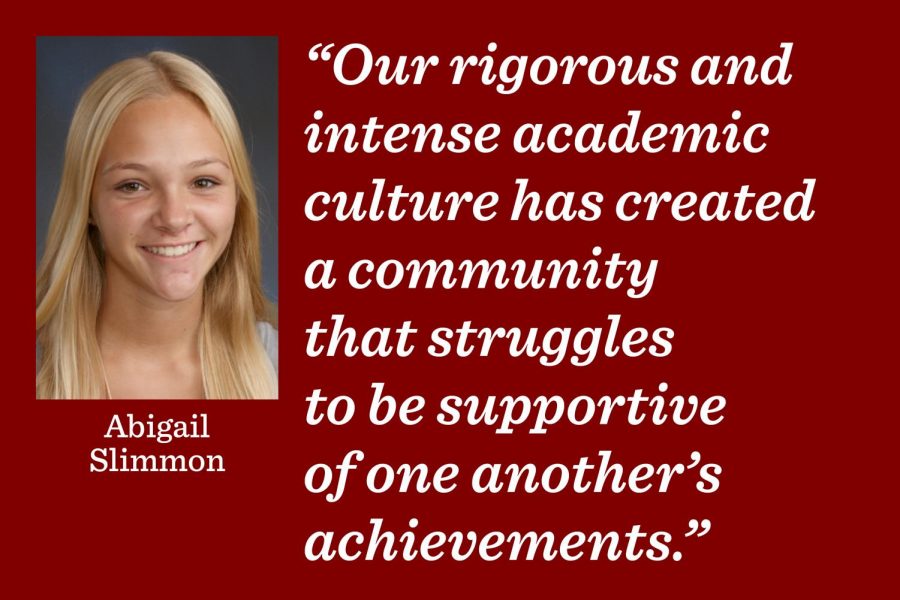Other students’ success doesn’t make you a failure
January 25, 2019
As I walked into the assembly hall Dec. 13 for the fall quarter student recognition assembly, I rolled my eyes, dreading sitting through names being awarded for their performances in math contests and MUN tournaments. I slumped into my seat while the girl sitting next to me rattled off names of students she knew would be recognized.
“I hate this assembly so much,” she said.
I decided to chime in, and said, “I’m so sick of applauding the same students’ awards over and over again. We get it. You’re good at m–” I stopped and quickly shut my mouth. In this moment I realized one of the problems we have at our school, and how I was guilty of it, too.
At Lab, we constantly tear each other down. Our rigorous and intense academic culture has created a community that struggles to be supportive of one another’s achievements.
Countless times, I’ve found myself and my peers comparing ourselves to other people. In most cases, comparing yourself can only hurt your self-confidence and originality. It’s OK to look at someone and think, “What can I learn from them,” but thinking “How can I be like them” or “How can I be better than them” will only hurt you in the long run.
Sometimes it feels like students at Lab see everything as a “win-lose” or a “me vs. you” situation, but it doesn’t have to be like this.
We need to remember that just because someone else is successful, doesn’t mean that we can’t be successful, too. Tearing someone down is not going to boost you up any higher.
In order to build a more supportive environment, there need to be more opportunities to recognize students that are excelling and are doing great things in areas separate from academics or sports.
This change could start in the very assembly that always seems to foster negative reactions. Similarly to how students get awards for community service and leadership at the end of the year, there should be time at the end of each recognition assembly where anyone can stand up, take the microphone, and tell the student body about someone they think deserves recognition. Not someone who got first place in a math contest or won the debate tournament, but someone that is making a difference in people’s lives, the school or their community. This will ease the competitive environment that Lab has created by helping students understand that there are many different ways to define success. It will also encourage students who usually aren’t recognized for academic achievements to support those who are.
It is important that we are more supportive of one another, and that starts by recognizing a wider scope of achievements.




























































